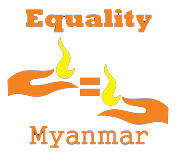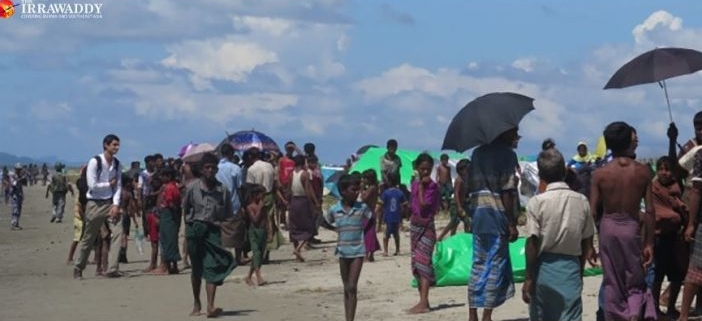By THE IRRAWADDY 20 November 2020
Myanmar has condemned a United Nations draft resolution on human rights for the Rohingya, backed by the Organization of Islamic Cooperation and the European Union, saying it is “intrusive” and “politically motivated”.
However, a majority of UN members – 131 countries – supported the resolution and the General Assembly approved it on Wednesday. Eight countries supported Myanmar and 31 abstained.
According to Myanmar’s Ministry of Foreign Affairs, U Kyaw Moe Tun, Myanmar’s permanent representative to the UN, said the assembly’s “adoption of the discriminatory draft resolution demonstrates the failure to uphold the principle of sovereign equality of nations, undermining impartiality and fairness, and application of double standards”.
The UN said the General Assembly expressed “grave concern at reports of serious human rights violations by the military and security forces, as well as violations of international humanitarian law in Myanmar against Rohingya and other minorities, notably in Kachin, Rakhine, southern Chin and Shan states”.
Following the Arakan Rohingya Salvation Army’s (ARSA) attacks on border police outposts in Oct. 2016 and Aug. 2017 in northern Rakhine State, the military responded with “clearance operations”, which prompted more than 740,000 Rohingya to flee to neighboring Bangladesh. Their repatriation has been planned since 2018 but never implemented and no Rohingya have chosen to return officially through the government’s repatriation program, which has been suspended because of COVID-19.
The UN said: “Among the abuses are those involving arbitrary arrests, deaths in detention, torture, deliberate killing and maiming of children, recruitment and use of children for forced labour, indiscriminate shelling of civilian areas, the burning of homes and the forced displacement of over 860,000 Rohingya and other minorities to Bangladesh.”
The United States, Canada and Germany co-sponsored the resolution and urged Myanmar to cooperate with the United Nations human rights mechanisms formed since 2017, including the UN’s Independent Investigative Mechanism for Myanmar and Special Rapporteur Tom Andrews, and to grant them access and assistance.
Germany, which represents the EU, said: “The humanitarian situation has not improved in recent years”, citing ongoing conflict in Rakhine State.
Coronavirus has exacerbated the situation, the German statement said. It added that the EU hopes “the draft will facilitate a solution for the Rohingya [and]sends a message of hope: the world doesn’t forget you, Rohingya people”.
U Kyaw Moe Tun said the text is “politically motivated”, “one-sided and barely reflects Myanmar’s efforts and initiatives to address the challenges, and to lay a firm foundation for lasting peace and prosperity”.
He added the sponsors of the resolution “conveniently ignore” attacks by ARSA and the Arakan Army. He denounced “illegitimate” pressure exerted on Myanmar which “fanned the flames” of conflict.
Myanmar formed its Independent Commission of Enquiry (ICOE) in 2018 to investigate allegations of human rights violations in Rakhine State.
In January, ICOE submitted its final report denying the security operations had genocidal intent. But the report admitted, “war crimes, serious human rights violations and violations of domestic law took place”.
The report stated that crimes occurred including mass killings of Rohingya and the burning of abandoned Muslim villages, which were allegedly committed by the security forces.
Myanmar is currently fighting a lawsuit filed by The Gambia at the International Court of Justice (ICJ) in The Hague alleging genocide against the Rohingya.
State Counselor Daw Aung San Suu Kyi defended the country against the charges last December. As the ICJ’s rulings are not binding, rights groups are pursuing an alternative approach by attempting to bring Myanmar’s generals to the International Criminal Court over alleged human rights violations.
U Aung Myo Min, a longtime human rights advocate, said allowing access to inquiries and cooperation with the international community and UN is a way to overcome the cycle of allegations against Myanmar.
He said successive governments in Myanmar have rejected the General Assembly’s resolutions, claiming they infringe on its sovereignty.
“But these objections in the past led to human rights cases going to the UN Security Council. If the current government does not cooperate, it might lead to further action against Myanmar,” he said.
Eight countries – China, Russia, Vietnam, the Philippines, Cambodia, Laos, Zimbabwe and Belarus – voted against this week’s UN resolution.
China said it will continue to assist talks between Myanmar and Bangladesh, which are crucial for Rohingya repatriation.
Russia’s representative said: “Myanmar requires real assistance, not sweeping criticism [and]such resolutions do not resolve human rights problems.”
Thirty-one countries abstained, including Japan, Thailand and Singapore.
Japan’s representative said: “The draft regrettably lacks balance and does not recognize Myanmar’s efforts to consolidate democracy.” However, the draft did reflect “the concerns of the international community about the humanitarian situation of the displaced and those living in Rakhine State”.
The General Assembly also approved six resolutions on human rights in Iran, North Korea, Syria and Russia.
Source;https://www.irrawaddy.com/news/burma/myanmar-condemns-un-rohingya-resolution.html


 Equality Myanmar (EQMM) is a leading nongovernmental organization that organises a wide range of human rights education and advocacy programs, the documentation human rights violations, and provides emergency support for activists, human rights defenders, and their families. We work with a range of local civil society organizations, educators, activists, various local actors, and our programs and activities reach all states and regions in Myanmar.
Equality Myanmar (EQMM) is a leading nongovernmental organization that organises a wide range of human rights education and advocacy programs, the documentation human rights violations, and provides emergency support for activists, human rights defenders, and their families. We work with a range of local civil society organizations, educators, activists, various local actors, and our programs and activities reach all states and regions in Myanmar.
